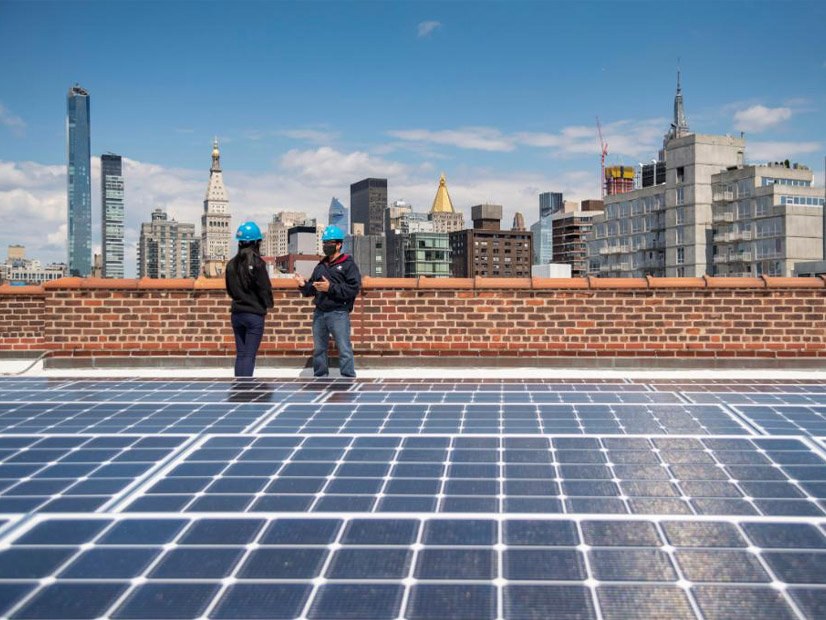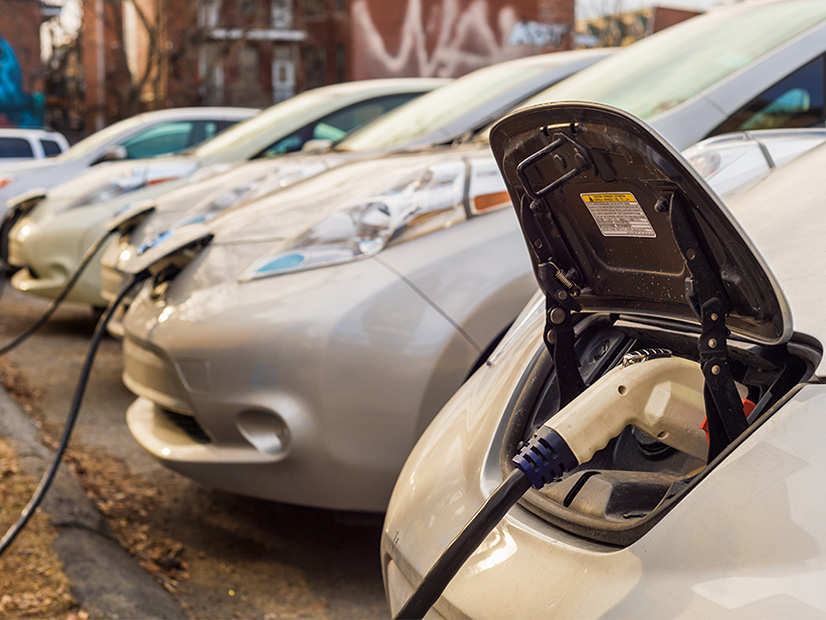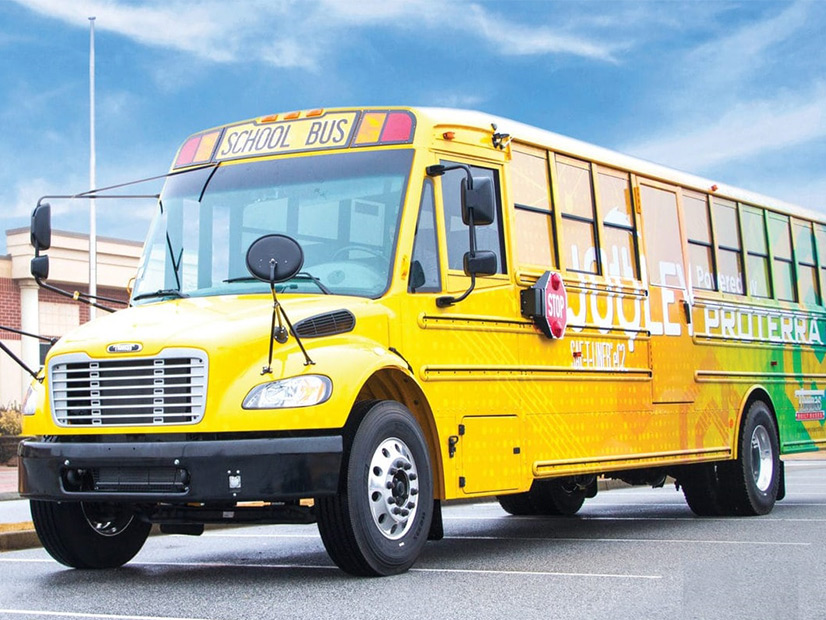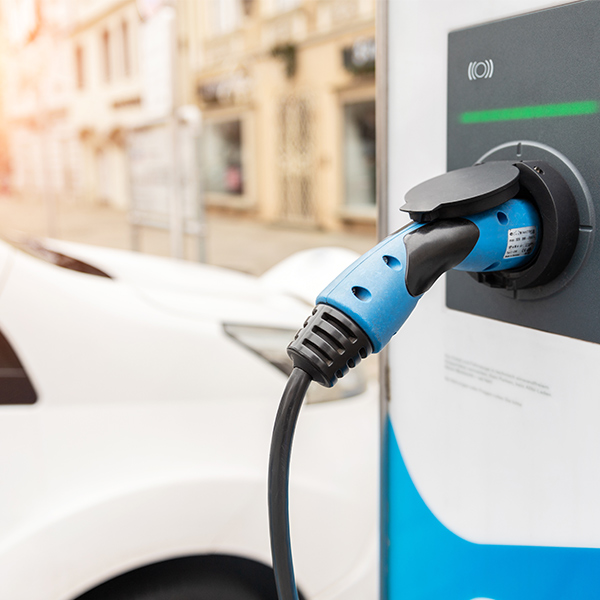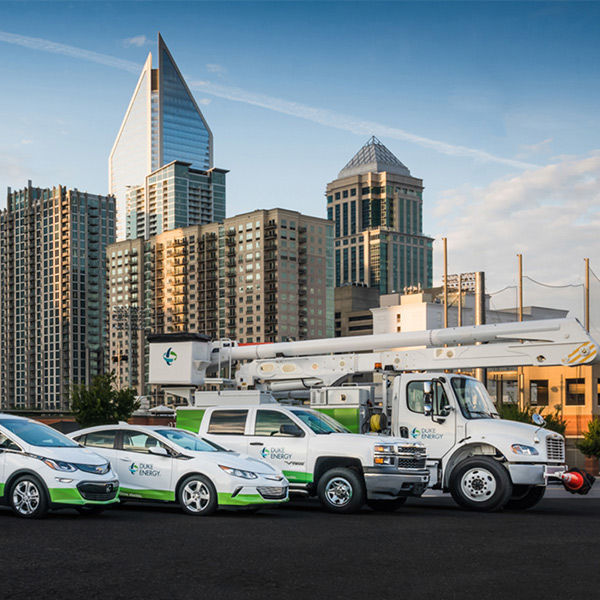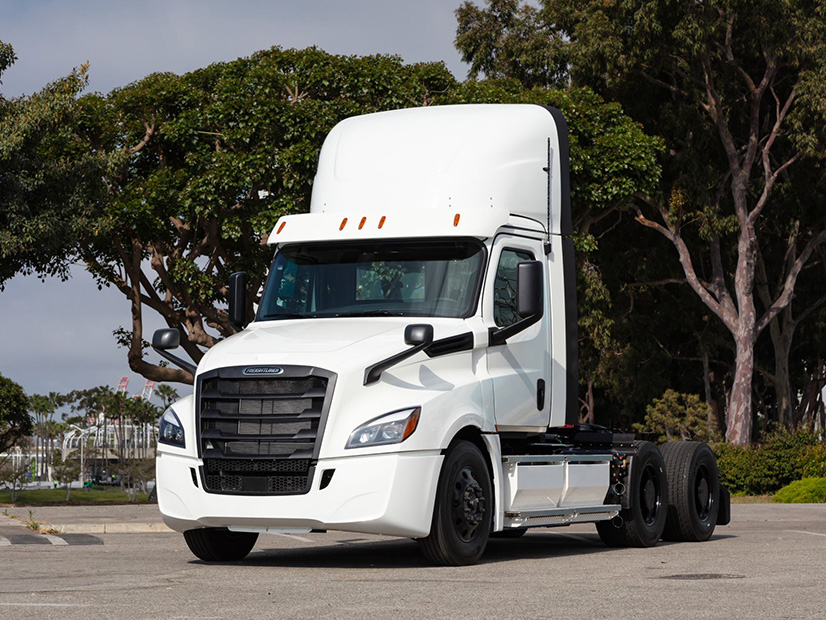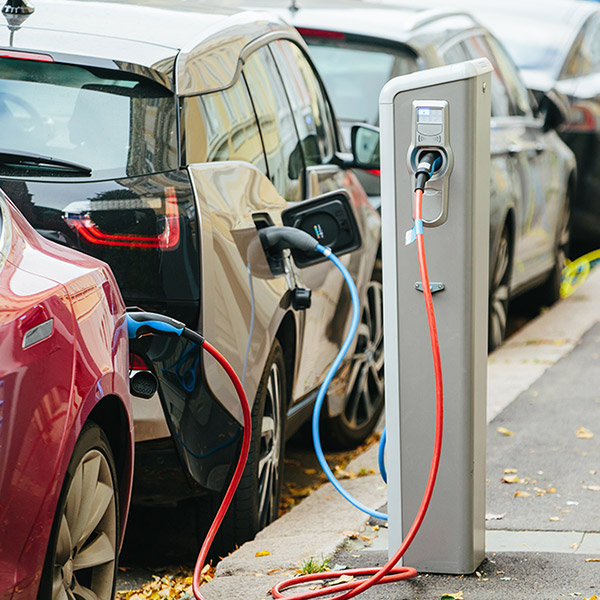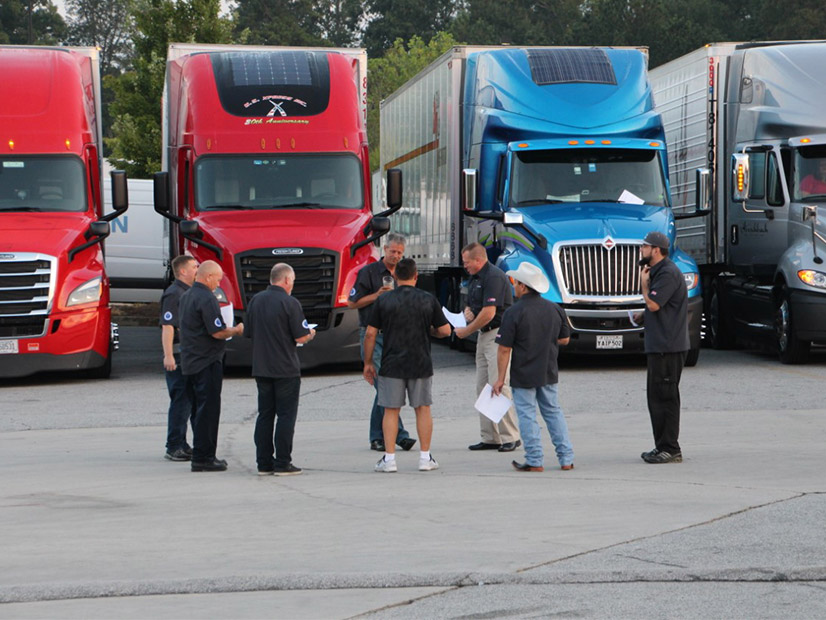Heavy-duty vehicles
Con Edison is staking its future on clean, emissions-free energy, going “all-in” on electric vehicles, energy efficiency and storage, CEO Tim Cawley said.
Zeroing out transportation emissions by 2050 will require getting 218 million EVs on the road worldwide by 2030. Business as usual won't work, BNEF says.
A Washington Supreme Court hearing provided a practice run for possible upcoming court battles over Gov. Inslee’s partial vetoes of recently passed climate bills.
The multiple values that e-buses can deliver to a community make it difficult to determine who should pay for the vehicles, according to DOE's Jigar Shah.
Speakers at one of the opening sessions of EPRI's four-day Frontiers of e-Mobility virtual forum said the U.S. is behind on its electric vehicle goals.
Duke Energy proposed spending $56 million to add 1,000 EV charging ports and fund 60 electric school buses in North Carolina.
Proposed rules that would require vendors in New Jersey to increase sales of medium- and heavy-duty electric trucks by 2035 faced vigorous criticism.
A bill awaiting Gov. Cuomo's signature would require new passenger cars and M/HD vehicles in New York to be zero emission by 2035 and 2045, respectively.
N.C. Gov. Roy Cooper signed on to a letter to President Biden, urging “all new passenger cars and light-duty trucks sold are zero-emission no later than 2035.”
The DOE said transportation accounts for the largest share of the nation's GHG emissions and must be significantly reduced to reach net zero by 2050.
Want more? Advanced Search
